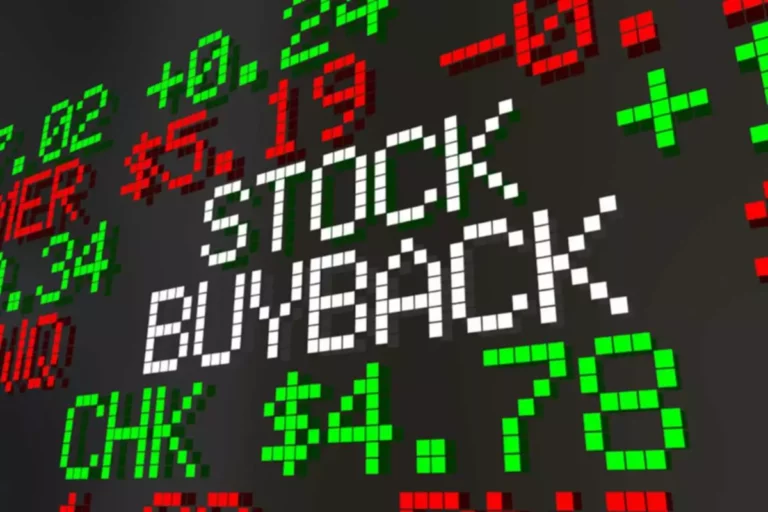Financial establishments engage in proprietary trading as a means of benefitting from perceived aggressive advantages and maximizing their income. Since proprietary trading makes use of the firm’s personal money somewhat than funds belonging to its clients, prop traders can tackle proprietary trading desk greater levels of threat without having to reply to shoppers. Proprietary trading offers many benefits to a financial establishment or commercial bank, most notably higher quarterly and annual income.

The core of those career alternatives resides within the individual’s ardour for markets, a knack for analysis, and a drive for fulfillment. There are a number of important interview questions which you can explore in our quant interview preparations course as properly. There are also many more sophisticated trading methods used by seasoned traders and quants. Explore a few of these trading techniques in our Advanced Algorithmic Trading Strategies studying track which is developed in collaboration with main industry experts. Prop buying and selling carries extra threat but also the potential for greater profit, whereas client-based trading supplies steadier, albeit smaller, revenue through charges.
We supply a variety of progressive services, including online buying and selling and investing, advisory, margin buying and selling facility, algorithmic trading, sensible orders, etc. Our Super App is a powerhouse of cutting-edge instruments such as basket orders, GTT orders,
Prop Trading By Inventory Brokers In India – A Dangerous Proposition
Many establishments have needed to regulate their trading methods to comply with these legal guidelines, usually leading to increased transparency and reduced risk in monetary markets. The types of proprietary buying and selling embrace equities buying and selling, fixed-income securities buying and selling, commodities and futures buying and selling, forex trading, derivatives buying and selling, and algorithmic or high-frequency buying and selling. Thus, understanding proprietary trading and its numerous varieties is important for financial institutions, given the numerous potential for revenue, coupled with the inherent dangers. Types of proprietary trading include equities trading, fixed-income securities trading, commodities and futures trading, foreign foreign money trading, derivatives trading, and algorithmic or high-frequency trading. The Volcker Rule prohibits banks and institutions that personal a bank from partaking in proprietary buying and selling or even investing in or owning a hedge fund or private fairness fund.
Proprietary trading, the apply of trading financial belongings utilizing a agency’s personal capital, has witnessed important evolution, driven by regulatory adjustments, market tendencies, and the pursuit of profit. None of the providers supplied by us shall be thought-about investment or financial companies in accordance with relevant laws. No employees, employees, or representatives of OANDA are authorized to supply funding advice or recommendations. As nicely as being a dealer, Milan writes day by day evaluation for the Axi community, using his in depth knowledge of financial markets to provide unique insights and commentary. Prop trading entails inherent dangers like several buying and selling, yet the agency typically bears the majority of it by risking its capital, although merchants risk shedding subscription or joining fees and not passing the firm’s buying and selling problem.
Is There Any Test To Move Before Getting A Funded Trading Account?
Consequently, the income generated from these trades accrue entirely to the entity conducting the buying and selling, eliminating the necessity to depend upon commissions earned from shopper investments. With recent regulatory modifications, the subscription fee-based mannequin is coming to an end, and plenty of merchants choose programmes that use live buying and selling accounts and don’t cost merchants any upfront costs. An particular person who trades utilizing the firm’s personal funds as an alternative of consumer funds is named a prop trader. To make money for the corporate, they typically take part in speculative trading, which might involve both short- and long-term buying and selling.

Most revenues generated by a prop agency come from the earnings generated by the prop traders. For instance, a dealer that generates $100,000 in income during a sure period and has a 40/60 revenue share agreement will obtain $40,000, whereas the remaining $60,000 goes to the firm. While danger administration remains critical, buying and selling on behalf of a prop agency is subject to more stringent rules and elevated scrutiny in order to restrict the firm’s capital publicity to potential losses. Technological advancements, notably in artificial intelligence (AI) and machine studying, are remodeling proprietary trading. Algorithmic buying and selling strategies are becoming more and more refined, enabling corporations to commerce more effectively and profitably. While proprietary buying and selling includes the firm buying and selling its capital, client-based trading entails trading on behalf of clients.
Which Brokers Does Prop Trading?
Our team of reviewers are established professionals with decades of expertise in areas of non-public finance and maintain many superior degrees and certifications. For instance, in Asia, the Monetary Authority of Singapore and the Hong Kong Securities and Futures Commission have rules governing proprietary trading. In the European Union, the Markets in Financial Instruments Directive II (MiFID II) has strict rules on proprietary trading, requiring larger transparency and improved investor protection. This entails trading in debt devices such as government bonds, corporate bonds, and different fixed-income securities. JPMorgan Chase, for instance, has a considerable fixed-income buying and selling operation, dealing in bonds and other debt devices.
Although generally seen as risky, proprietary buying and selling is usually one of the profitable operations of a industrial or investment bank. During the financial crisis of 2008, prop traders and hedge funds were among the many companies that were scrutinized for causing the disaster. Stock market pundits also informally discuss with this type of activity as ‘prop trading’. Before you assume in any other case, the funds that these corporations use for buying and selling or investing within the stock market are their very own and never these of their purchasers.
Volker argued that industrial banks engaged in high-speculation investments affected the soundness of the general monetary system. Commercial banks that practiced proprietary trading increased using derivatives as a method of mitigating risk. Proprietary merchants can access subtle proprietary buying and selling technology and other automated software.
Apex Buying And Selling Funding
Forex-proprietary companies usually provide professional training, market analysis, and technical support to help merchants enhance their buying and selling skills and knowledge. These further sources can be invaluable for traders trying to improve their understanding of Forex and develop effective trading strategies. Prop traders make all or most of their revenue from splitting profits they generate in financial markets with the prop firm that gives them with capital. Proprietary buying and selling companies sometimes permit their traders autonomy in making trading selections. If a dealer’s losses attain this predefined threshold, the agency will intervene and suspend the trader’s trading actions to mitigate further monetary risks. A prop trading agency is an organization that gives its traders with entry to capital.

Proprietary trading allows monetary establishments to get pleasure from a higher rate of return when in comparison with investing in different options like bonds and time period deposits. Traditional proprietary buying and selling corporations are the longest-standing form of prop trading. It is the most restrictive form of proprietary trading and has several rigid elements.
Take self-paced programs to grasp the basics of finance and connect with like-minded individuals. Our writing and editorial staff are a group of consultants holding advanced monetary designations and have written for most major monetary media publications. Our work has been immediately cited by organizations together with Entrepreneur, Business Insider, Investopedia, Forbes, CNBC, and lots of others. The articles and research support supplies available on this website are academic and aren’t intended to be investment or tax advice. All such info is provided solely for convenience functions only and all users thereof must be guided accordingly. Finance Strategists has an promoting relationship with a number of the companies included on this website.
Ask Any Monetary Question
In response to the Volcker rule, main banks have separated the proprietary buying and selling perform from its core actions or have shut them down utterly. Proprietary buying and selling is now offered as a standalone service by specialised prop trading firms. Firms go into proprietary buying and selling with the assumption that they have a aggressive advantage and access to priceless info that may assist them reap massive earnings.
Choose A Prop Buying And Selling Firm
In the context of the future of proprietary trading, it seems that a substantial portion of prop buying and selling firms, approximately 73% based mostly on interviews, anticipated that 2023 would current plentiful trading prospects. However, solely 18% of those corporations expressed confidence of their capability to capitalise on these alternatives. Forex prop trading fashions can differ based mostly on the preparations between merchants and companies. One of the commonest fashions is revenue sharing, where the prop buying and selling firm provides the capital and the platform, and the dealer is answerable for executing the trades. The income generated from the trades are then shared between the dealer and the corporate, typically based mostly on a predetermined profit-sharing ratio.
